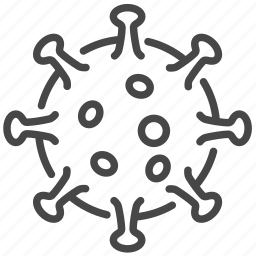Research Area


The Center for Complementary and Integrative Health (Bioprospecting Laboratory) is engaged in research on AYUSH principles and concepts through transdisciplinary biomedical research. The activities of CCIH involve research on communicable and non-communicable diseases, drug discovery, informatics, research capacity building, and education.
The research in the field of aging focuses on understanding the complex mechanism of aging through modern and Ayurveda perspectives. It elaborates on the concept of healthy aging along with the management of aging.
This area involves AyuGenomics™ and network pharmacology. AyuGenomics® approach deals with molecular understanding of constitutional phenotype (Prakriti). Network pharmacology is an in-silico approach for systematic study of molecular interactions of a drug molecule with protein targets in a living systems.
The research initiatives include (a) identifying botanical extracts and formulations, (b) authenticating preparatory methods of extracts and formulations, (c) investigating pharmacological activities, (d) Assessing the quality and stability of Ayurveda-based drugs, and (e) Pharmacokinetic-Pharmacodynamic, Toxicokinetics-Toxicodynamic, DMPK, Herb-Drug Interactions studies.
Prof. Bhushan Patwardhan, an educationist, leads several academic bodies that deal with educational reforms by implementing policies and regulating compliances. This area incorporates such few articles and reports.
Immunology, being a central physiological mechanism in Ayurveda, is explored widely to understand the molecular mechanism of Ayurveda-based botanicals. The immunomodulatory activity of these botanicals is applied as an adjuvant to vaccines and chemotherapeutic agents.
Ayurveda approach of disease management is holistic and personalize. This considers microorganisms as symbiotic part of the entire ecosystem. and has a focus on strengthening immunity and homeostasis. This area represents such studies that investigate effects and mechanisms of Ayurveda interventions in infectious diseases.
A confluence of medicinal systems is the need of the hour. The COVID-19 pandemic has underlined the necessity of integrative medicine. Therefore, this area of research systematically studies combinations of drugs from different origins.
The fundamentals of Ayurveda in gynaecology can be applied to augment maternal and child health. The research explores Ayurveda principles for improving maternal and child health outcomes.
Patwardhan B. Ayurveda for all: 11 action points for 2011. J Ayurveda Integr Med. 2010;1(4):237–9.
Patwardhan B. Ayurveda, evidence-base and scientific rigor. J Ayurveda Integr Med. 2010;1(3):169–70.
Patwardhan B. Historical future of Ayurveda. J Ayurveda Integr Med. 2013;4(4):189–92.
Patwardhan B. Traditions, rituals and science of Ayurveda. J Ayurveda Integr Med. 2014;5(3):131–3.
Patwardhan B. Public perception of AYUSH. J Ayurveda Integr Med. 2015;6(3):147–9.
The present therapeutic approaches to metabolic disorders focus on regulating the biological parameters. Traditional medicine systems like Ayurveda identifies the root cause of metabolic disorders and prescribes diet and exercise modulations along with medicines to maintain homeostasis. This area compiles the research in this direction.
The nootropic botanicals have special mention in classical texts of Ayurveda and are destined to augment cognition and ameliorate stress factors. This research area unites the studies of Ayurveda-based nootropic botanicals in neuro-psychological pathophysiology.
The rising challenge of cancer needs innovative approaches to improve safety and efficacy of interventions. This research area presents the studies of Ayurveda-based botanicals to manage the adverse effects of therapeutic agents for better cancer management.
The research translation for global well-being is crucial. The translational research and research-based policies culminate in public health. The articles and discussions in this line are compiled into this research area.
Ethics and research are the foundations of science. Awareness about research integrity and publication ethics is the need of the hour. The publications from this area inculcate research ethics among researchers, teachers, and librarians.
Patwardhan B, Ranade S. Hand Book of Research Methods. Pune: Anmol Prakashan; 1990. 154 p.
Patwardhan B. Indian Science and Predatory Journals. J Ayurveda Integr Med. 2017;8(1):1–2.
Patwardhan B. Why India is striking back against predatory journals. Nature. 2019 Jul;571(7763):7.
Patwardhan B, Desiraju G. Assessing research: the slippery slope. Curr Sci. 2020;118(12):1869–70.
All thinkers are not scientists and all scientists are not writers. It takes a special effort to inculcate several research-related capacities into researchers. This area compiles the initiatives taken towards research capacity building for health sciences and AYUSH systems.
Pain and inflammation play a central role in rheumatic diseases. The management of rheumatic pain and inflammation includes long term therapeutics with known adverse effects. This area includes extensive research on Ayurveda-based interventions in rheumatic diseases.
Copyright © Savitribai Phule Pune University, School of Health Sciences, Pune. All Rights Reserved.
[Best viewed in IE 10+, Firefox, Chrome, Safari, Opera.]
:::| powered by dimakh consultants |:::














